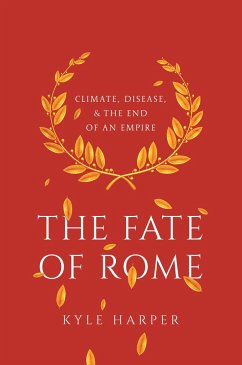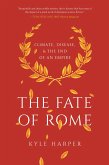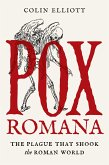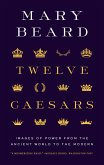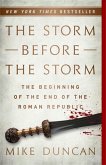Here is the monumental retelling of one of the most consequential chapters of human history: the fall of the Roman Empire. The Fate of Rome is the first book to examine the catastrophic role that climate change and infectious diseases played in the collapse of Rome's power - a story of nature's triumph over human ambition. Interweaving a grand historical narrative with cutting-edge climate science and genetic discoveries, Kyle Harper traces how the fate of Rome was decided not just by emperors, soldiers, and barbarians but also by volcanic eruptions, solar cycles, climate instability, and devastating viruses and bacteria. He takes readers from Rome's pinnacle in the second century, when the empire seemed an invincible superpower, to its unraveling by the seventh century, when Rome was politically fragmented and materially depleted. Harper describes how the Romans were resilient in the face of enormous environmental stress, until the besieged empire could no longer withstand the combined challenges of a "little ice age" and recurrent outbreaks of bubonic plague.
"In this riveting history, Kyle Harper shows that disease and environmental conditions were not just instrumental in the final collapse of the Roman Empire but were serious problems for centuries before the fall. Harper's compelling and cautionary tale documents the deadly plagues, fevers, and other pestilences that ravaged the population time and again, resulting in far more deaths than ever caused by enemy forces. One wonders - like Edward Gibbon - how the empire managed to last as long as it did."--Eric H. Cline, author of 1177 B.C.: The Year Civilization Collapsed

